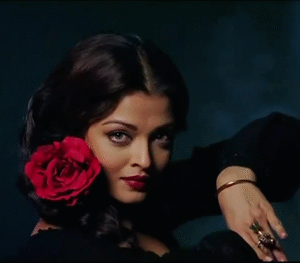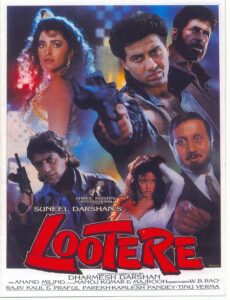In the wake of the Instagram-dominating ‘Wednesday dance’, fans and watchers from all over the globe have been enraptured by the Wednesday series. The latest TV show that happens to be the new sensation on the block has its own set of reasons to rightfully gain the viewer’s attention and affection alike. Be it the eccentric yet enticing Addams family, the recluse yet bold and charismatic Wednesday, love triangles and not to mention the adventurous twists and turns in the plot; this show does it all.

With a show that’s so loved and has managed to capture the attention of many, it’s natural for fans to go ‘What if?’
Say, what if Enid was Wednesday’s love interest? What if Tyler’s role had a different turn in the series? Or what if Morticia joined Wednesday in combating external forces and keeping Nevermore safe?
Fan fictions exist and continue to come into existence to answer these very questions.
They are simply works of fiction that are created by fans and integrate significant aspects from works that exist in the field of literature, pop culture, fashion etc. To be more specific, TV shows, books, and movies are often the inspiration.
Fan fictions have the power to reverse a tragic ending, to add more depth to an existing premise, to make queer folks feel a lot more included with relatable content, and whatnot?

Taking an example of the popular platform, ‘Wattpad’, with an annual revenue extending up to $50 million and a user base of more than 90 million readers world-wide, it’s testament to the wide appeal of fanfictions and the urgency to disseminate and access the same.
All of this paints a rosy picture where the readers/fans and the keen writers are both happy. But are we ignoring the possibility of infringement of the creator or author’s legal right over these original works? What is the legality of these fanfictions?
Let’s find out?
DOES FANFICTION CLASH WITH THE AMERICAN DREAM ?

When one thinks of some well-known, major fanfictions from the US, the ‘AFTER’ series comes to mind. Written by Anna Todd and originally involving members from the real life boy band, ‘One direction’, the series was written and uploaded on Wattpad, which later goes on to publish the same into novels, thereby monetizing the popularity of the same. However, one must note that the male character’s names, originally named as the band members, have been changed. Sources stated that this was owing to legal reasons and we will examine exactly what these ‘legal reasons’ are that monitor fan fictions all over the country.
Copyright law in America is governed by the US Copyright Act from the US Code. It protects different categories of creative works right from literary works to graphics. The owner of the copyright has exclusive rights over their work and this also includes the right to create derivative work based on the pre-existing one. Fanfiction is essentially derivative work by essence. However, this is created by parties who are not the owners of the copyright over the original work and thereby legally don’t hold the right to create such derivative works . Therefore, they would violate the second exclusive right of derivative works. Not only this but the fanfic authors also stand at a position of violating at least three of five exclusive rights granted to the copyright owner under Section 106 of the Copyright act.

One of the initial copyright cases involving fan fictions dates back to 1977 itself, when the copyright owner of ‘Star Trek’ sent a cease and desist letter to publishers of a Star Trek fan magazine called Spockanalia (fanzine). The letter was later withdrawn owing to the non-commercial nature of the fanzine.

In the case of Anderson v. Stallone, the plaintiff, had written a fourth part, after watching the three Rocky movies and sent it to Sylvester Stallone. When the fourth installment was published, the screenwriter discovered that significant portions of the movie had been added without giving him credit. Later, the screenwriter filed a lawsuit. However, the Court ruled that it was an “unauthorized derivative” of Stallone’s work and was not covered by the script’s copyright.
So to clear the mystery, yes, fan fictions do result in copyright infringements.
Characters of fictional works can also be protected by copyright law and hence, the fan fiction author would be infringing the owner’s exclusive right every time he uses the character in the fan work.
But it is not necessary that the original author or creator does file a suit against the various fan fictions that exist in the public domain. Even in the event that it happens, the fan fiction authors do have certain defenses that can be put to use.
Before employing their defenses, fanfic authors must identify the exact right of the copyright owner that the fanfic infringes following which, they need to understand what is at a clash with the fan work.
Congress codified a ‘Fair-use’ doctrine that permits certain uses of copyright-protected work provided that a ‘four-factor’ test is applied on a subjective basis depending on the circumstances of each case. The doctrine directs investigation into (1) the purpose and character of the use, including whether such use is for nonprofit educational purposes or is of a commercial nature; (2) the nature of the copyrighted work; (3) the amount and substantiality of the portion used in relation to the copyrighted work as a whole; and (4) the effect of the use on the potential market for or value of the copyrighted work.
This doctrine originated from the landmark 1841 case of Folsom v Marsh, which involved the unauthorized use of George Washington’s private letters by an author in the former’s biography.

Parody is another ground for claiming the defence of ‘fair use’. In the case ‘Campbell v. Acuff-Rose Music, Inc” the Supreme Court held that a parody of copyrighted work can come under the ambit of fair use, as long it can be reasonably perceived to be so. In the case Suntrust v. Houghton Mifflin, involving determining whether ‘The Wind Done Gone’ was infringing on the original ‘Gone with the Wind’, the court examined that new plot elements were created to satirize the original plot and hence held it to be a parody. However, one counter argument that can be used against the fanfic authors can be found in “Castle Rock Entertainment v Carol publishing group, Inc’. This involved an unauthorized trivia book based on the widely popular TV series “Seinfield”. The court held that even if fanfic is of non-commercial nature, this can pose a challenge for the copyright owners as the potential capitalization or novelization of the fanfic can prove to be a threat to the market position held by the original work.
THE DESI STAND ON THE LEGALITY OF FANFICTION
The Copyright Act of 1957 and the Copyright (Amendment) Act of 2012 are the laws governing the copyright scenario in the Indian Jurisdiction. The terms of these Acts make it apparent that the creators of the works are given exclusive protection, which also forbids others from utilizing the works unfairly. Any individual who infringes on the rights of the person in whose favor the copyright is vested is said to have violated the copyright.
According to the Act of 1957, only transformative works qualify for copyright protection. Since the copyright regime only protects expressions, not ideas.
The Modicum of Creativity doctrine was established by the Supreme Court in the famous case of ‘Eastern Book Company v. D.B. Modak’. According to this doctrine, there must be a minimum level of originality in a work for it to qualify as protectable under copyright law; simply being unique or innovative is not enough. Consequently, modifications might have a “flavor or minimal degree of inventiveness.”
Here are some considerations that fan fiction authors have to make in India, in the unlikely event that they would be accused of copyright infringement: Fair dealing is defined under Section 52 of the Copyright Act of 1957. It is an adaptation of the Fair Use doctrine from the American jurisdiction. According to the idea behind it, some works that would have otherwise amounted to infringement would be legally permissible. Fan fiction may not be granted copyright protection under Indian law since it is considered an unauthorized derivative work, but it may certainly defend itself against infringement claims using the four factor-test laid down by the fair-dealing doctrine based on the Fair use doctrine.

One such case involving the fair dealing doctrine is The Chancellor Masters and Scholars of The University of Oxford v. Narendra Publishing House and Ors. where Oxford alleged copyright infringement by a Guidebook that reproduced the former’s exercises and solutions and has unfairly derived benefit from it’s goodwill. The court had to decide if the Fair-use doctrine would be applicable. It observed the importance of there being a balance between the protection of copyright with the promotion of creative agency and activity. For this, the transformative nature of the use of the original work in question has to be examined. In this case since the Guide book approached the subject in a different manner from the textbooks published by Oxford, the court held that it did fall within the ambit of fair dealing under Section 52 (1) (ii) of the act.
Despite the fact that tall claims of the need to protect creativity are often made by jurists and law makers alike, fan fiction writing is copyright infringement regardless. To preserve the spirit of liberation, expression and artistry, the law ought to explicitly recognize the position of such fan work. But again, the issue of protection of the rights of the copyright owner crop-up in response to this. A balancing act is what the underlying solution to this is, in essence.









![Demna woke up and chose violence!!!
Gucci Milan Fashion Week Fall 2026, Demna’s debut Runway ✨🙇🏻♀️💋
[Demna, Gucci, Milan Fashion Week, Runway, Fashion, Italy, Let The Raven Talk]](https://lettheraventalk.com/wp-content/plugins/instagram-feed/img/placeholder.png)
